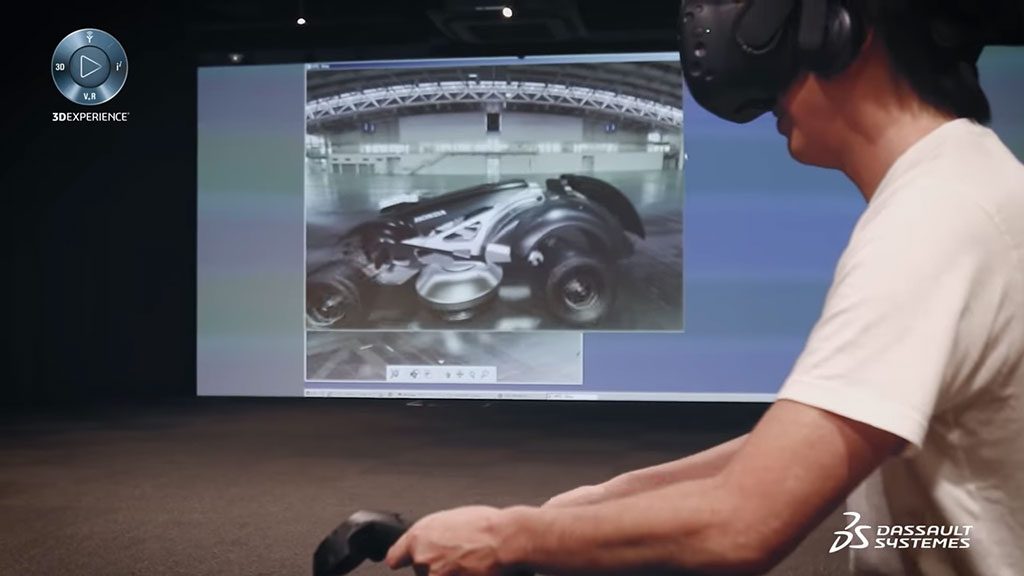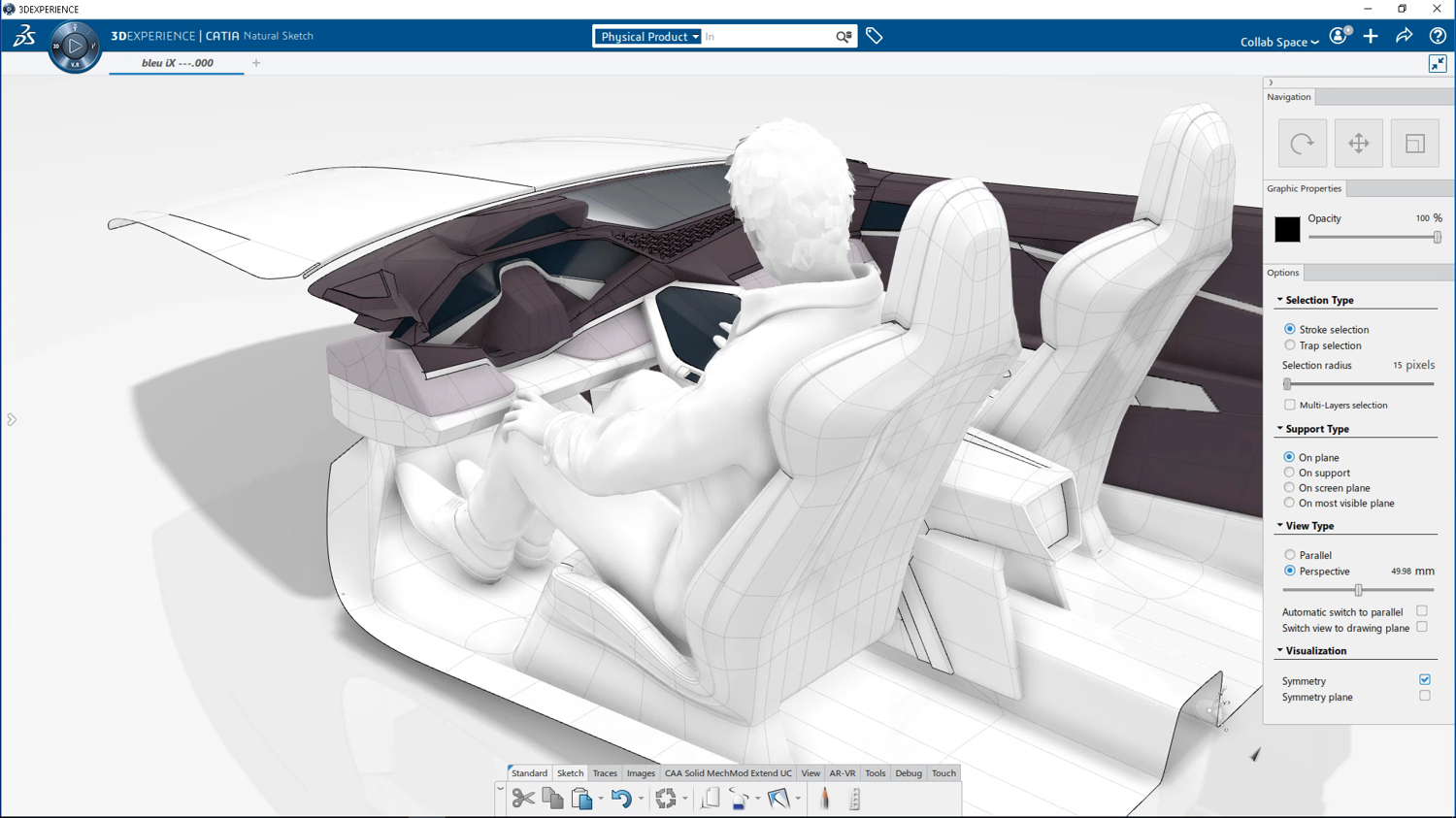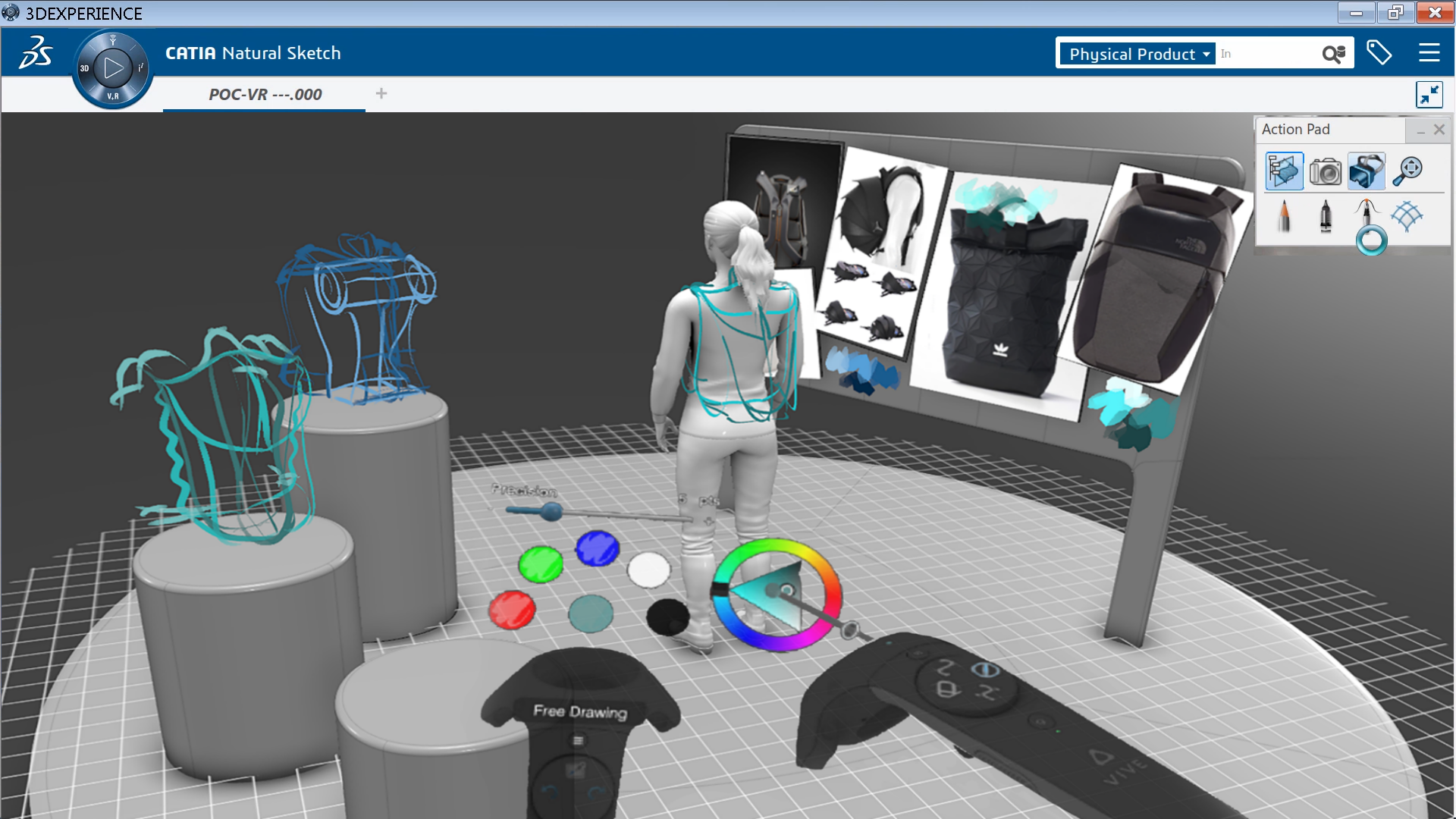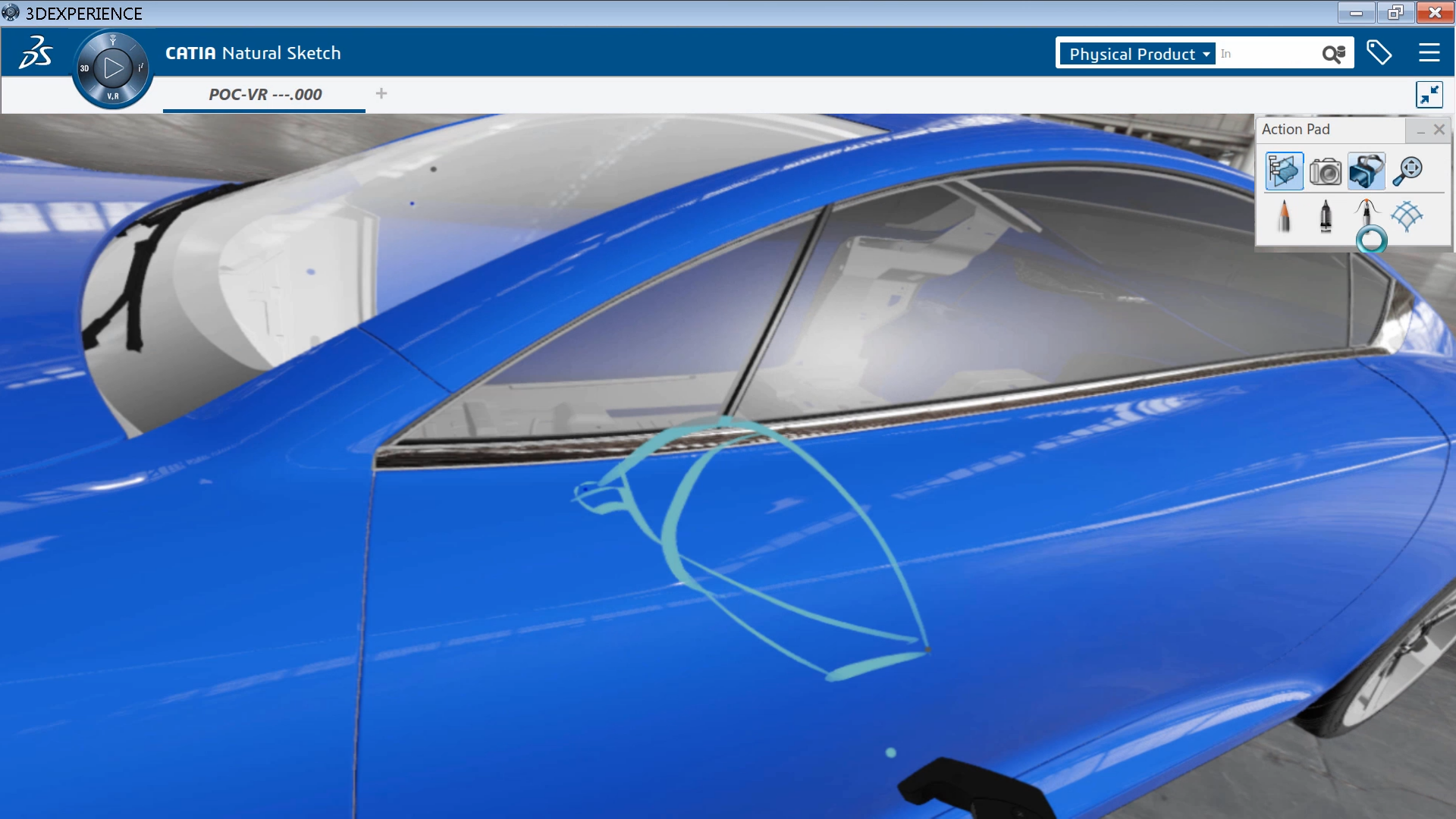With the goal of fundamentally changing how design concepts go from the mind’s eye to reality, HTC VIVE Pro teamed up with Dassault Systèmes. That objective is becoming even more important within complex technology and engineering verticals—as agility, responsiveness, and speed to market continually shift.

Over the last four decades Dassault Systèmes has led the world in the application of 3D technology in design and engineering. From its origins in aerospace, it now supports a myriad of manufacturing disciplines. 3D design is central to Dassault Systèmes’ philosophy and a primary feature of its entire software portfolio. This focus has made them a natural partner for the HTC VIVE Pro. By using its CATIA Natural Sketch platform Dassault Systèmes is upending traditional processes of design, manufacturing, and testing—improving collaboration and reducing time to market.

Design workflows are typically linear. They begin with sketches, then design, followed by computer-aided design (CAD), industrialization, and eventually full production. By the time the product assumes its first 3D existence, the original concept on which it was based might be lost in multiple iterations. Meanwhile, in the time it takes for the design to reach its first physical form, consumers’ evolving tastes—as well as competitors’ offerings—may have moved on. Additionally, the conventional sketched concept approach does not lend itself easily to collaboration. It also limits output to the creative and technical abilities of a single designer. With the help of the HTC VIVE Pro, these conventions and their limitations are being challenged by Dassault Systèmes—reinventing how complex design and engineering concepts are brought to life.
By utilizing the HTC VIVE Pro’s sophisticated VR capability, CATIA Natural Sketch enables designers quickly to sketch in 3DS and render their ideas as fully-visualized 3D designs at the conceptualization stage. This allows designers and engineers to realistically form compelling ideas and translate their creative vision directly into the design and engineering, invigorating the process. Automotive designer and CEO Takumi Yamamoto commented: “For automotive design it’s important to do a full-size scale model. When I tried it for the first time I was into the virtual world, and I almost forgot about the real world.”

The HTC VIVE Pro headset enables CATIA users to create, style, modify, and validate complex, innovative shapes. This can also greatly increase the speed and efficiency with which organizations can evaluate requests for product changes. A benefit like this offers multiple uses across a breadth of diverse sectors—such as aerospace, shipbuilding, energy, and architecture. It also enables the formulation, design, and manufacturing of electrical systems—spanning the complete process from conceptual design through production.
“We are moving into the age of experience,” claims Xavier Melkonian, Director of the CATIA Design Portfolio. “For us, the experience is critical. The ability to experience your design in a more immersive and natural way is key, and to make it accessible directly from the Design authoring Application CATIA is essential. For creative designers and engineers, there are many use cases where the immersive experience is very powerful all along their Design innovation process.”

With the help of the HTC VIVE Pro, CATIA is revolutionizing the speed ideas can travel from the depths of a designer’s imagination to the hands of the consumer. Organizations working with complex technology and engineering can now quickly explore hypotheticals at a lower cost, allowing designers and manufacturers to test hypotheses in order to gather answers faster than before. Designers also noticed using the tool provided immediate results and helped stimulate creative thinking, as well as innovation, to a far greater extent than conventional 2D sketching.
For decades the process of converting conceptual thoughts into prototyped design has been cumbersome, costly, and wasteful. Thanks to HTC VIVE Pro and CATIA Natural Sketch, a more dynamic, flexible, and collaborative process is now available—not only by allowing ideas and products to be conceived, but to be optimized in real-time, too.
Website: LINK


